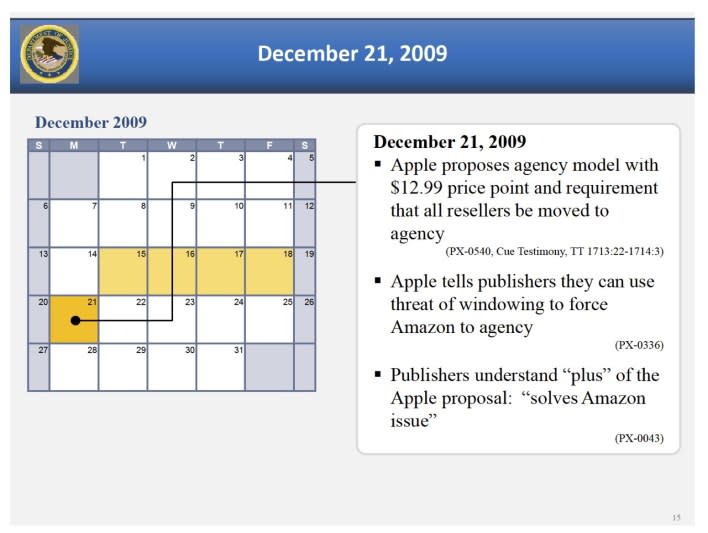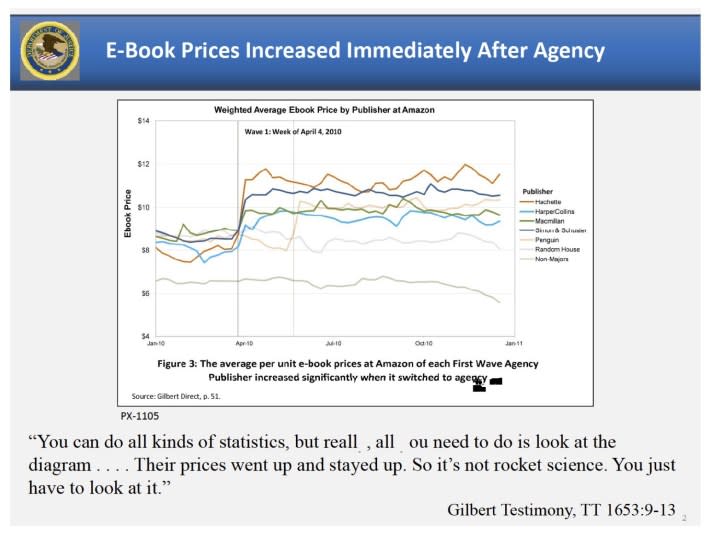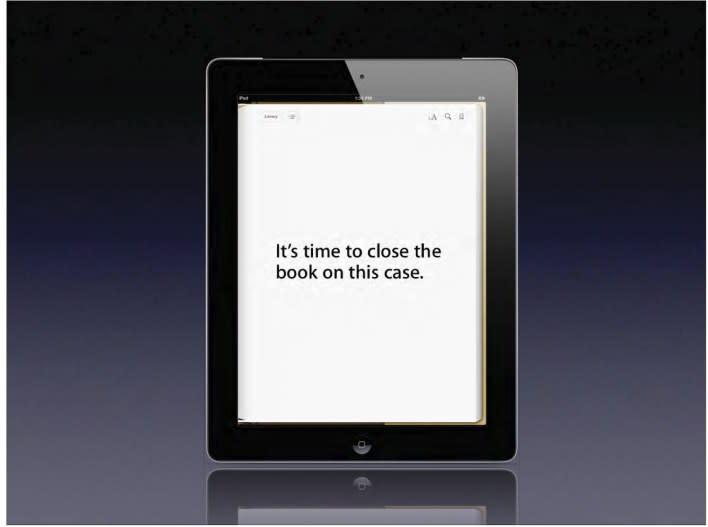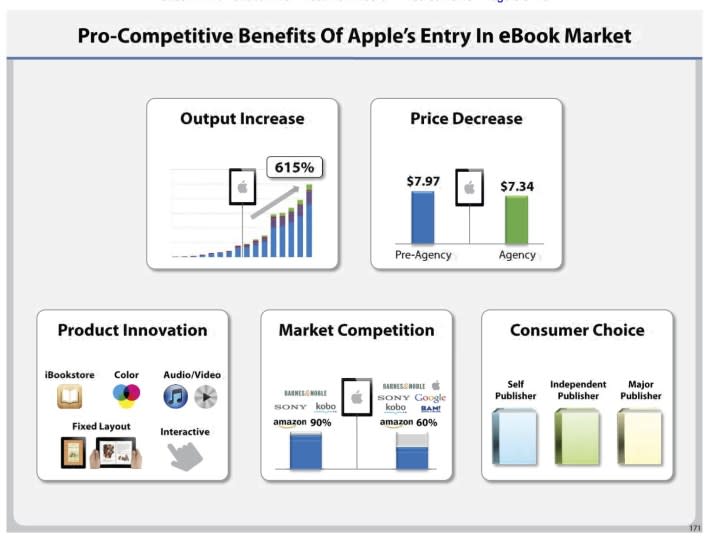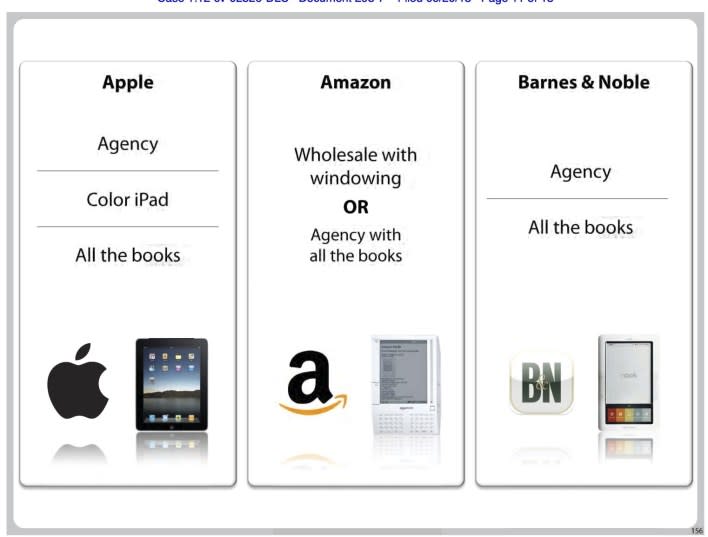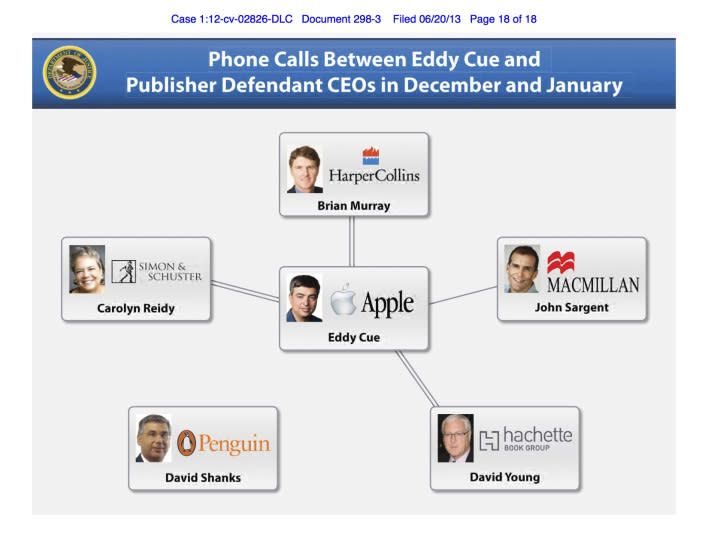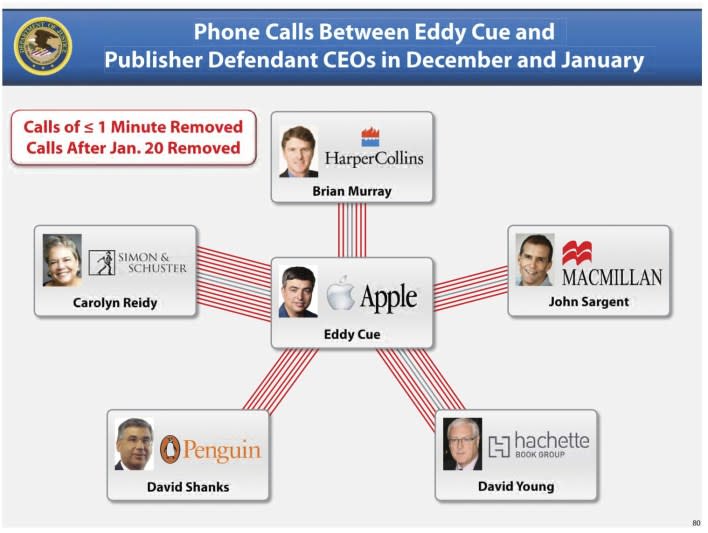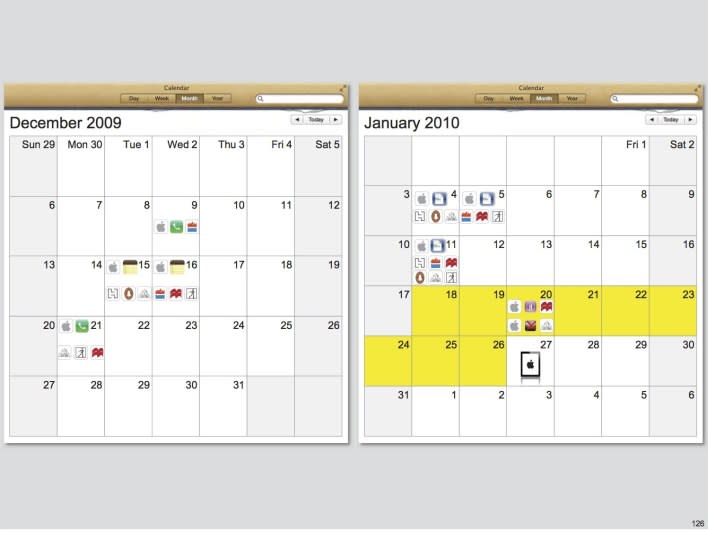The Best Slides from the Closing Arguments in the Apple Ebooks Case
MORE FROM PAIDCONTENT: Why I Will Never Click on Your Instagram Video DOJ Compares Apple & Publishers to Oil Cartels The Netflix Algorithm Is Working
Apple and the Justice Department made closing arguments in the ebook pricing case Thursday. Apple argued that a ruling against it would lead to a “chilling” effect on commerce and content markets in the U.S., while the DOJ said this is a straightforward antitrust suit and compared Apple and publishers to Saudi Arabian oil cartels.
RELATED: Apple Denies Conspiracy in E-book Pricing Trial
While we wait for Judge Denise Cote’s verdict — which could take weeks or months — here’s a peek at some of the funniest and/or most interesting slides from the closing arguments.
RELATED: Apple's Antitrust Problem May Get Real
Apple wins on graphics and iOS imagery
Apple made a calendar to show the dates and times of its calls with publishers. Apple argues that the breaks between the calls show that it wasn’t acting as a behind-the-scenes “ringmaster.”
RELATED: What Really Happens in Rielle Hunter's Memoir; Author Band Splits
RELATED: Apple Does What Google Couldn't, Cuts Deal With Four Major Labels
Apple took apart some of the slides from the DOJ’s opening argument, in which the DOJ mentioned a “spiderweb” of calls between Apple and publishers. Taking out calls that lasted less than a minute and calls after January 20 (which, Apple says, were negotiating calls right before the launch of the iPad), Apple wanted to show again that it actually made very few calls to publishers.
RELATED: Justice Department Moves Forward on Apple Suit; Inside the Rare Book School
Apple argues that its negotiations with publishers were difficult, and said this would not have been the case if Apple and publishers colluded.
Apple says Amazon’s move to agency was a rational business move, “for prudent and intelligent business reasons.”
Apple argues that the iBookstore benefitted the ebooks market.
Apple closes its argument on an iPad.
The government: No iPad shots here
The DOJ opens with a slide showing that ebook prices rose after agency pricing was enacted.
“We have a calendar too, Your Honor,” government attorney Mark Ryan said.
The DOJ argues that Apple’s insistence on an MFN required other retailers to adopt an MFN as well.
Apple’s witnesses repeatedly provided unreliable testimony, the DOJ says.
When the iPad launched, Walt Mossberg asked Steve Jobs how the iBookstore could compete if it had higher prices. Jobs replied that the prices wouldn’t be higher. The DOJ then cited an email exchange between Simon & Schuster executives describing Jobs’ response as “incredibly stupid” — the DOJ says they knew it was something Jobs should not have revealed.
Apple and publishers knew that ebook prices would be higher under agency, the DOJ argues.
This was straightforward price-fixing, the DOJ argues.




